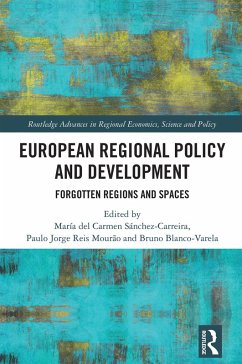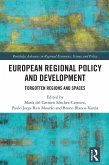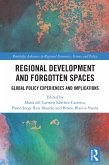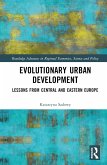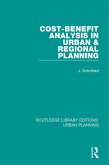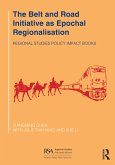European Regional Policy and Development (eBook, PDF)
Forgotten Regions and Spaces
Redaktion: Sánchez-Carreira, María del Carmen; Blanco-Varela, Bruno; Reis Mourão, Paulo Jorge
42,95 €
42,95 €
inkl. MwSt.
Sofort per Download lieferbar

21 °P sammeln
42,95 €
Als Download kaufen

42,95 €
inkl. MwSt.
Sofort per Download lieferbar

21 °P sammeln
Jetzt verschenken
Alle Infos zum eBook verschenken
42,95 €
inkl. MwSt.
Sofort per Download lieferbar
Alle Infos zum eBook verschenken

21 °P sammeln
European Regional Policy and Development (eBook, PDF)
Forgotten Regions and Spaces
Redaktion: Sánchez-Carreira, María del Carmen; Blanco-Varela, Bruno; Reis Mourão, Paulo Jorge
- Format: PDF
- Merkliste
- Auf die Merkliste
- Bewerten Bewerten
- Teilen
- Produkt teilen
- Produkterinnerung
- Produkterinnerung

Bitte loggen Sie sich zunächst in Ihr Kundenkonto ein oder registrieren Sie sich bei
bücher.de, um das eBook-Abo tolino select nutzen zu können.
Hier können Sie sich einloggen
Hier können Sie sich einloggen
Sie sind bereits eingeloggt. Klicken Sie auf 2. tolino select Abo, um fortzufahren.

Bitte loggen Sie sich zunächst in Ihr Kundenkonto ein oder registrieren Sie sich bei bücher.de, um das eBook-Abo tolino select nutzen zu können.
This book addresses regional development theories and policies, with a special focus on forgotten places, and raises emerging questions about recent theoretical advances, as well as trends and challenges in the field.
- Geräte: PC
- mit Kopierschutz
- eBook Hilfe
Andere Kunden interessierten sich auch für
![European Regional Policy and Development (eBook, ePUB) European Regional Policy and Development (eBook, ePUB)]() European Regional Policy and Development (eBook, ePUB)42,95 €
European Regional Policy and Development (eBook, ePUB)42,95 €![Regional Development and Forgotten Spaces (eBook, PDF) Regional Development and Forgotten Spaces (eBook, PDF)]() Regional Development and Forgotten Spaces (eBook, PDF)42,95 €
Regional Development and Forgotten Spaces (eBook, PDF)42,95 €![Border Cities and Territorial Development (eBook, PDF) Border Cities and Territorial Development (eBook, PDF)]() Border Cities and Territorial Development (eBook, PDF)43,95 €
Border Cities and Territorial Development (eBook, PDF)43,95 €![Evolutionary Urban Development (eBook, PDF) Evolutionary Urban Development (eBook, PDF)]() Katarzyna SadowyEvolutionary Urban Development (eBook, PDF)42,95 €
Katarzyna SadowyEvolutionary Urban Development (eBook, PDF)42,95 €![Re-Constructing the Global Network Economy (eBook, PDF) Re-Constructing the Global Network Economy (eBook, PDF)]() Andrew TaylorRe-Constructing the Global Network Economy (eBook, PDF)48,95 €
Andrew TaylorRe-Constructing the Global Network Economy (eBook, PDF)48,95 €![Cost-Benefit Analysis in Urban & Regional Planning (eBook, PDF) Cost-Benefit Analysis in Urban & Regional Planning (eBook, PDF)]() John SchofieldCost-Benefit Analysis in Urban & Regional Planning (eBook, PDF)34,95 €
John SchofieldCost-Benefit Analysis in Urban & Regional Planning (eBook, PDF)34,95 €![The Belt and Road Initiative as Epochal Regionalisation (eBook, PDF) The Belt and Road Initiative as Epochal Regionalisation (eBook, PDF)]() Xiangming ChenThe Belt and Road Initiative as Epochal Regionalisation (eBook, PDF)37,95 €
Xiangming ChenThe Belt and Road Initiative as Epochal Regionalisation (eBook, PDF)37,95 €-
-
-
This book addresses regional development theories and policies, with a special focus on forgotten places, and raises emerging questions about recent theoretical advances, as well as trends and challenges in the field.
Dieser Download kann aus rechtlichen Gründen nur mit Rechnungsadresse in A, B, BG, CY, CZ, D, DK, EW, E, FIN, F, GR, HR, H, IRL, I, LT, L, LR, M, NL, PL, P, R, S, SLO, SK ausgeliefert werden.
Produktdetails
- Produktdetails
- Verlag: Taylor & Francis eBooks
- Seitenzahl: 220
- Erscheinungstermin: 18. Juli 2023
- Englisch
- ISBN-13: 9781000907636
- Artikelnr.: 68131393
- Verlag: Taylor & Francis eBooks
- Seitenzahl: 220
- Erscheinungstermin: 18. Juli 2023
- Englisch
- ISBN-13: 9781000907636
- Artikelnr.: 68131393
- Herstellerkennzeichnung Die Herstellerinformationen sind derzeit nicht verfügbar.
María del Carmen Sánchez-Carreira is Associate Professor of Applied Economics at the University of Santiago de Compostela, Galicia, Spain. Paulo Jorge Reis Mourão is Associate Professor in the Department of Economics, at the University of Minho, Braga, Portugal. Bruno Blanco-Varela is Lecturer of Applied Economics at the University of Santiago de Compostela, Galicia, Spain.
Introduction. Forgotten Spaces in the European Regional Policy and
Development Part I: Regional Development and Policies in Europe: main
theoretical advances and last trends and challenges 1. Comparative
assessment of rural realities in the European Union: The main drivers of
the rural population 2. Agglomeration of knowledge intensive activities and
brain drain: global cities and forgotten regions across Europe. A case
study with Spanish data Part II: Comparative analysis of regional
experiences on forgotten spaces in Europe 3. How to make forgotten spaces
visible? Image making as a coping strategy of two European small towns 4.
Italian Inner areas' strategic plans: a textual network analysis of the
Appennino Emiliano and Madonie case studies 5. Engaging with forgotten
places: Applying a multifaceted understanding of place in an analysis of
two Danish cases 6. Revitalizing forgotten spaces through local leadership
and social entrepreneurial ecosystems: the case of Muszyna Commune 7. The
specificity determinants of monetary and fiscal policy in the V4 countries.
Comparative economics perspective 8. Public procurement as a transformative
innovation policy instrument: urban rehabilitation in Malmö Conclusions.
Regional Policies, Development and Forgotten Spaces in Europe
Development Part I: Regional Development and Policies in Europe: main
theoretical advances and last trends and challenges 1. Comparative
assessment of rural realities in the European Union: The main drivers of
the rural population 2. Agglomeration of knowledge intensive activities and
brain drain: global cities and forgotten regions across Europe. A case
study with Spanish data Part II: Comparative analysis of regional
experiences on forgotten spaces in Europe 3. How to make forgotten spaces
visible? Image making as a coping strategy of two European small towns 4.
Italian Inner areas' strategic plans: a textual network analysis of the
Appennino Emiliano and Madonie case studies 5. Engaging with forgotten
places: Applying a multifaceted understanding of place in an analysis of
two Danish cases 6. Revitalizing forgotten spaces through local leadership
and social entrepreneurial ecosystems: the case of Muszyna Commune 7. The
specificity determinants of monetary and fiscal policy in the V4 countries.
Comparative economics perspective 8. Public procurement as a transformative
innovation policy instrument: urban rehabilitation in Malmö Conclusions.
Regional Policies, Development and Forgotten Spaces in Europe
Introduction. Forgotten Spaces in the European Regional Policy and
Development Part I: Regional Development and Policies in Europe: main
theoretical advances and last trends and challenges 1. Comparative
assessment of rural realities in the European Union: The main drivers of
the rural population 2. Agglomeration of knowledge intensive activities and
brain drain: global cities and forgotten regions across Europe. A case
study with Spanish data Part II: Comparative analysis of regional
experiences on forgotten spaces in Europe 3. How to make forgotten spaces
visible? Image making as a coping strategy of two European small towns 4.
Italian Inner areas' strategic plans: a textual network analysis of the
Appennino Emiliano and Madonie case studies 5. Engaging with forgotten
places: Applying a multifaceted understanding of place in an analysis of
two Danish cases 6. Revitalizing forgotten spaces through local leadership
and social entrepreneurial ecosystems: the case of Muszyna Commune 7. The
specificity determinants of monetary and fiscal policy in the V4 countries.
Comparative economics perspective 8. Public procurement as a transformative
innovation policy instrument: urban rehabilitation in Malmö Conclusions.
Regional Policies, Development and Forgotten Spaces in Europe
Development Part I: Regional Development and Policies in Europe: main
theoretical advances and last trends and challenges 1. Comparative
assessment of rural realities in the European Union: The main drivers of
the rural population 2. Agglomeration of knowledge intensive activities and
brain drain: global cities and forgotten regions across Europe. A case
study with Spanish data Part II: Comparative analysis of regional
experiences on forgotten spaces in Europe 3. How to make forgotten spaces
visible? Image making as a coping strategy of two European small towns 4.
Italian Inner areas' strategic plans: a textual network analysis of the
Appennino Emiliano and Madonie case studies 5. Engaging with forgotten
places: Applying a multifaceted understanding of place in an analysis of
two Danish cases 6. Revitalizing forgotten spaces through local leadership
and social entrepreneurial ecosystems: the case of Muszyna Commune 7. The
specificity determinants of monetary and fiscal policy in the V4 countries.
Comparative economics perspective 8. Public procurement as a transformative
innovation policy instrument: urban rehabilitation in Malmö Conclusions.
Regional Policies, Development and Forgotten Spaces in Europe
